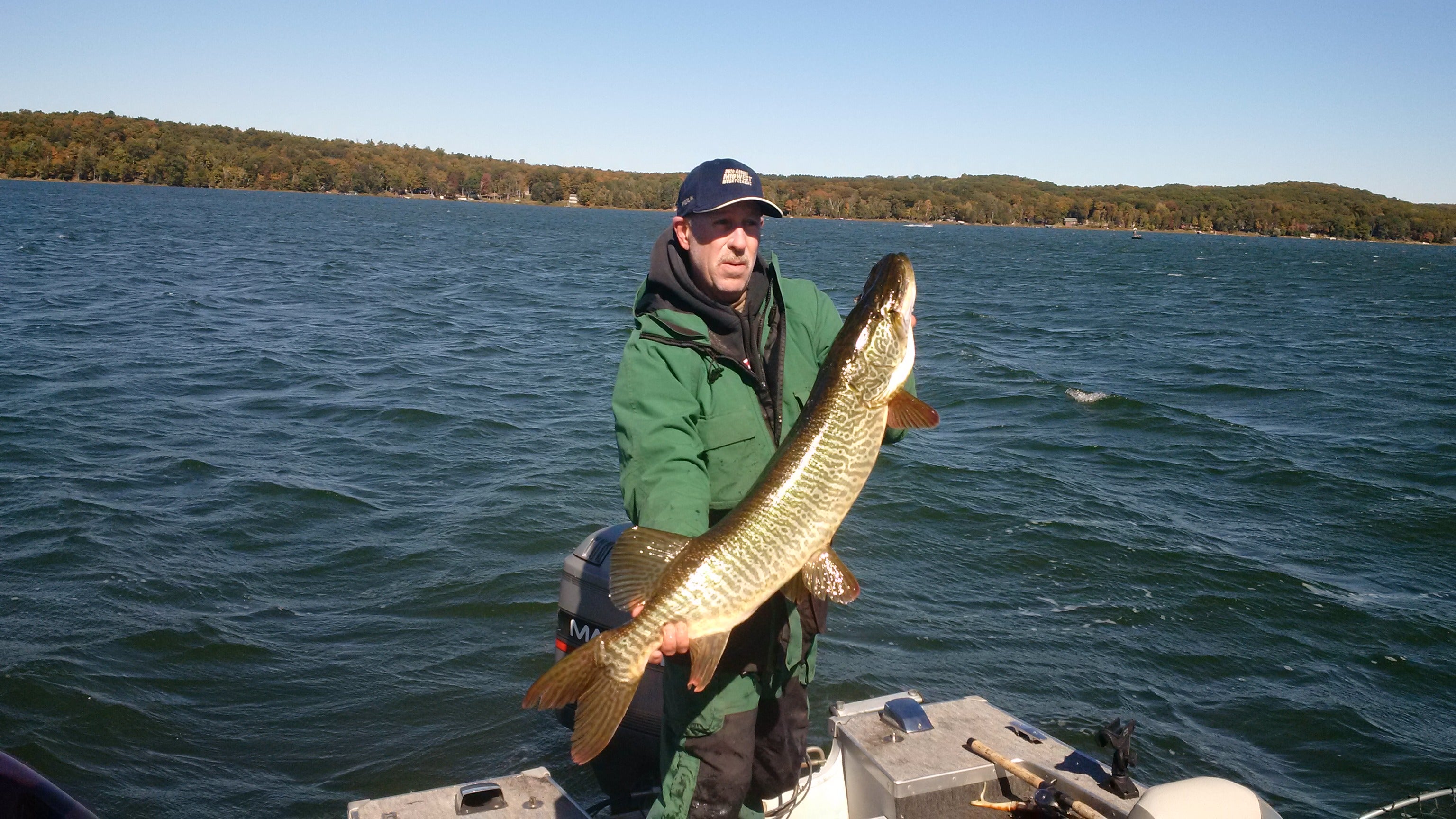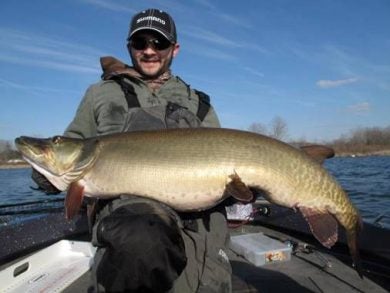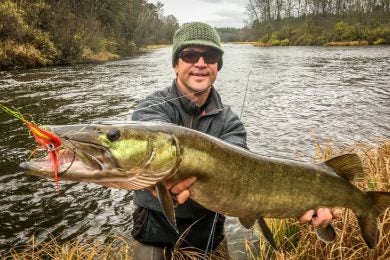Michigan Muskie Stocking Put on Hold Due to Deadly Virus
Bob McNally 05.03.17

Michigan’s DNR has announced it will not collect eggs from Great Lakes muskellunge in the Detroit River due to recent fish kills in Lake St. Clair that are attributed to a widespread infection of viral hemorrhagic septicemia virus (VHSv).
Normally, the DNR collects eggs from the Detroit River’s muskellunge population to be reared at Wolf Lake State Fish Hatchery in Mattawan and stocked each fall in Michigan waters throughout the state. With an increasing number of dead muskellunge being found in the Detroit River, and the confirmed presence of the viral virus in Lake St. Clair, DNR fisheries managers feel the risk of contaminating this hatchery is too great to proceed with this year’s rearing efforts.

VHSv is a contagious pathogen that causes the fish’s blood vessels to leak, which can show as bloody patches on the skin. It is known to infect more than 30 species of Great Lakes fish and has been found in lakes Superior, Huron, Erie, and Ontario, along with a few inland lakes. Some species such as lake sturgeon and walleye are very resistant to it, while others including bluegill, largemouth bass, muskellunge, gizzard shad, and round goby are very susceptible.
“VHSv has never been found in one of our state fish hatcheries and it is our intent to keep it that way,” said the DNR’s fish production manager, Ed Eisch. “We know it is safer to place our muskellunge rearing program on hold this year rather than bringing in these Detroit River muskellunge eggs and risk infecting our hatchery. We know this particular pathogen has been in the Lake St. Clair/Detroit River system since the early 2000s, so there’s always some level of risk associated with bringing eggs from that area to a hatchery. However, the risk goes up significantly when eggs are collected during an active disease outbreak.”
If VHSv was found at Wolf Lake State Fish Hatchery, there is a likelihood the facility–possibly including all steelhead and Chinook salmon–would need to be depopulated (destroyed and landfilled), which would affect future fish stocking efforts and fishing opportunities statewide.
Muskellunge are a long-lived species. The DNR is confident having a one-year gap in its stocking efforts will not be a real detriment to this fishery or to the program.
